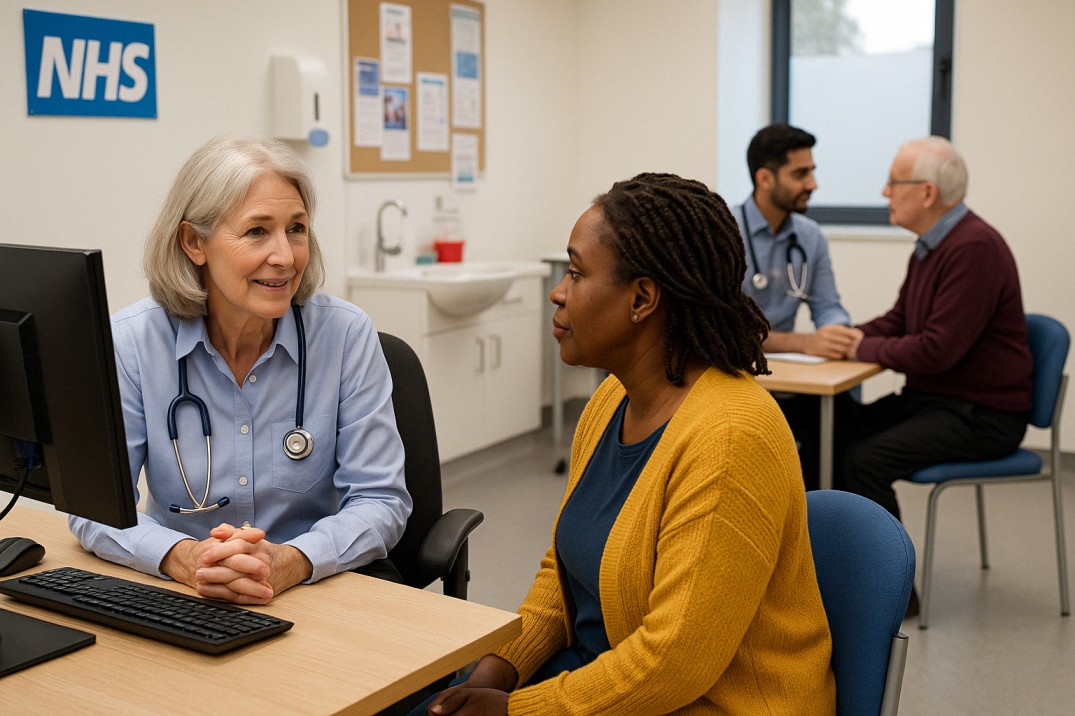The NHS GP Scheme Expansion introduces a £20 incentive for General Practitioners (GPs) who consult specialists before referring patients to hospitals. This initiative empowers GPs to manage more conditions locally, aiming to ease pressure on hospital services and improve patient access to timely care. With £80 million in funding, the scheme aligns with NHS England’s broader strategy to shift healthcare delivery into community settings.
Currently, more than 6 million people in England await hospital-based treatments. To address this growing demand, NHS England revised the 2025/26 GP contract to prioritize primary care. According to official guidance from NHS England, the expansion could help up to 2 million patients receive quicker treatment through their GP instead of being referred to hospitals.
Understanding the NHS GP Scheme Expansion
- Incentivized Care Pathways: GPs now receive £20 for each patient case managed via specialist advice rather than direct referral.
- Conditions Included: The scheme focuses on non-urgent cases such as IBS, tinnitus, menopause symptoms, and mild joint pain.
- Digital Integration: GPs use NHS systems to contact consultants and usually get feedback within 24 hours.
- Wide Coverage: The initiative is expected to reduce up to 2 million hospital referrals annually.
How the Incentive Supports Local Healthcare
The NHS GP Scheme Expansion helps GPs keep care closer to home. Instead of sending patients to hospital specialists by default, GPs can resolve cases locally with real-time expert input.
- Faster Response: Patients avoid long referral waits by getting care directly from their GP, supported by consultant advice.
- Greater Continuity: Care stays within the community, improving follow-up and patient satisfaction.
- More Efficient Use of NHS Resources: Hospitals can focus on complex cases while GPs manage common conditions effectively.
According to The Guardian, this approach supports NHS England’s goal to “bring care closer to home” and reduce pressure on outpatient departments.
Benefits of the GP Advice and Guidance Model
This “advice and guidance” approach builds on existing digital tools. Instead of referring every patient, GPs use the platform to message specialists and receive tailored advice on diagnosis or treatment.
This model allows:
- Fewer unnecessary referrals
- More targeted and timely care
- Better collaboration between primary and secondary care teams
A BMJ article noted that this system has already reduced outpatient demand in pilot areas, and patient outcomes remained positive.
What Experts Are Saying About the Scheme
“By caring for patients closer to home, we save time and stop masses of people having to head to hospital for unnecessary appointments.”— Karin Smyth, Minister for NHS Reform
“This is a small but important step in acknowledging the crucial role of the GP and supporting practices to deliver patient-centered care.”— Dr. Katie Bramall-Stainer, Chair, BMA GP Committee in England
Challenges Facing the NHS GP Scheme Expansion
Despite its potential, the scheme comes with challenges that must be addressed:
- Delayed Escalation: Patients who truly need specialist care could face delays if GPs rely too heavily on advice systems.
- Increased Workload: GPs may spend more time coordinating care, especially in practices with limited staff.
- Technology Gaps: Some areas still lack the digital infrastructure needed to fully implement advice-and-guidance tools.
The King’s Fund cautioned that while the scheme improves efficiency, it must not delay care for high-priority cases.
Results from Pilot Programs and What Comes Next
Pilot studies across England show the model works well when supported by training and IT infrastructure. GPs used the platform to resolve cases faster, avoid hospital referrals, and increase patient satisfaction.
According to the Nuffield Trust, future success will depend on integrating advice tools with workforce planning and ongoing support.
Conclusion: NHS GP Scheme Expansion as a Model for Future Care
The NHS GP Scheme Expansion reflects the NHS’s growing commitment to local, timely, and efficient care. By equipping GPs with the tools and incentives to consult specialists remotely, the program creates a bridge between community-based and hospital-based care.
As NHS England continues to evaluate outcomes, this scheme may serve as a blueprint for future reforms across the healthcare system—where collaboration, prevention, and proximity drive better outcomes for all.
For full details, visit the official NHS England website.
Medical Disclaimer: This article is for informational purposes only and does not constitute medical advice. Always consult a licensed healthcare provider for diagnosis or treatment guidance.
Explore More :
https://innovatemed.org


